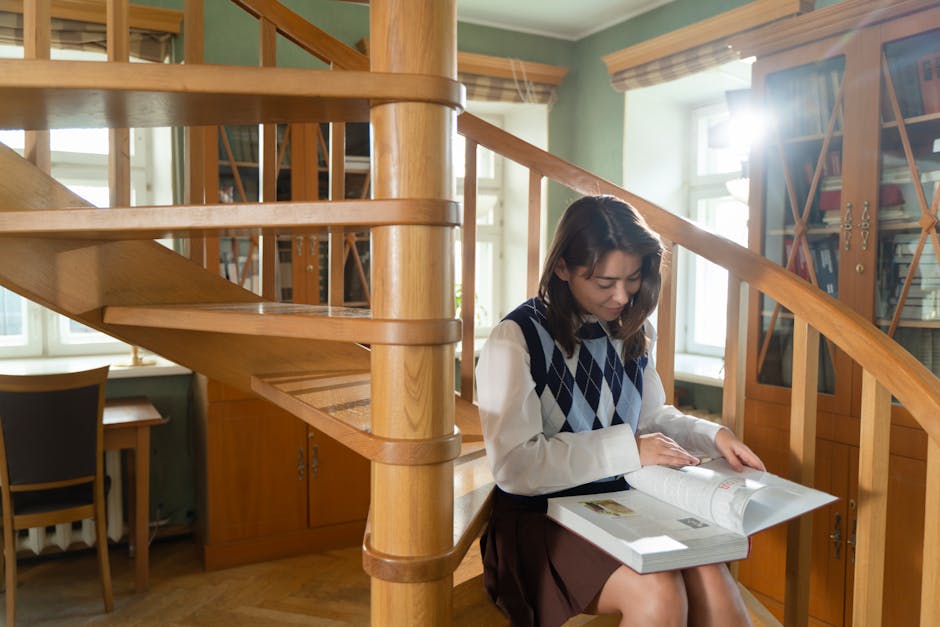Finding Balance: Study Time vs Relaxation
Do you often feel overwhelmed by your study schedule? You’re not alone. Many students and professionals struggle to balance study time with relaxation. But finding the right balance is key to your success and well-being. So, lets explore how to juggle these two important parts of life.
Why is Balance Important?

Finding balance between study and relaxation can boost your productivity. It can also help you maintain your mental health. Studies show that people who take regular breaks while studying retain information better and feel less stressed.
According to the American Psychological Association, taking time off can actually enhance your learning. This is because breaks allow your brain to recharge. So, how do we create this balance?
How Much Study Time Do You Need?

Every person learns differently, so theres no one-size-fits-all answer. However, a good rule of thumb is to study 25-50 minutes with a break of 5-10 minutes in between. This method is often called the Pomodoro Technique.
Heres a simple breakdown:
- Study for 25 minutes: Focus entirely on your work.
- Take a 5-minute break: Stand up, stretch, or grab a snack.
- Repeat: After four cycles, take a longer break of 15-30 minutes.
This approach can help keep you fresh and focused.
What About Relaxation?

Relaxation isn’t just about laying on the couch. it’s about doing activities that help you recharge. This can include:
- Reading a book
- Going for a walk
- Practicing yoga or meditation
- Spending time with friends and family
Finding what relaxes you is essential. It could be listening to music or even cooking. Whatever it is, make sure to include it in your daily routine.
How Can You Create a Balanced Schedule?

Creating a balanced schedule involves planning and prioritizing your tasks. Start by listing all your study commitments and relaxation activities. Heres how:
- Identify your peak study times: When do you feel most alert?
- Set specific goals: Decide what you want to achieve in each study session.
- Include breaks: don’t forget to schedule breaks during your study times.
For example, if you know you study best in the morning, plan your toughest subjects for that time. Use the afternoon for lighter study or relaxation. This way, you can maximize your productivity while still making time to unwind.
What Are Common Misconceptions About Study vs Relaxation?
Many people believe that studying hard means you cannot relax. This is not true! In fact, relaxation is crucial for effective learning. Here are some common misconceptions:
- More study time equals better grades: Quality over quantity! Effective study habits are more important.
- Relaxation is a waste of time: Breaks enhance focus, making your study time more productive.
- I can’t relax; I have too much to do: Taking short breaks can help you get more done in less time.
Remember, time spent relaxing is an investment in your future success.
How Can You Stay Motivated?
Staying motivated is vital for balancing study and relaxation. Here are some tips to keep you on track:
- Set rewards: Treat yourself after completing a study session!
- Find a study buddy: Studying with someone else can make learning more enjoyable.
- Change your environment: Sometimes, a new setting can spark motivation.
Motivation can fluctuate. Being prepared with these strategies can help you stay focused and energized.
What Should You Avoid?
To maintain balance, there are some habits you should avoid:
- Procrastination: Delaying your studies can lead to cramming, which is stressful.
- Over-scheduling: don’t pack too much into your day. This can lead to burnout.
- Ignoring your needs: Pay attention to your body and mind. If you’re tired, take a break!
By avoiding these pitfalls, you can create a more balanced and enjoyable routine.
What Are Some Relaxation Techniques?
There are many effective relaxation techniques you can try. Here are a few simple methods:
- Deep breathing: Inhale deeply for 4 counts, hold for 4 counts, then exhale for 4 counts.
- Progressive muscle relaxation: Tense and release each muscle group, starting from your toes and working up.
- Mindfulness meditation: Focus on your breath and let thoughts pass without judgment.
Finding what works for you is crucial. Experiment with different techniques until you find your favorites!
Can Technology Help?
Absolutely! There are many apps designed to help manage study time and relaxation. Some popular options include:
- Forest: Helps you stay focused by planting virtual trees during study sessions.
- Headspace: Offers guided meditations and relaxation techniques.
- Focus@Will: Provides music designed to enhance concentration.
Using technology wisely can enhance your study and relaxation practices.
What Are Some Actionable Takeaways?
Finding the right balance between study time and relaxation is essential for success. Here are some key points to remember:
- Utilize techniques like the Pomodoro Technique for effective studying.
- Make time for activities that help you relax.
- Set achievable goals and schedule breaks.
- Stay motivated by incorporating rewards and changing your study environment.
- Avoid procrastination and over-scheduling.
By following these guidelines, you can create a balanced routine that works for you.
Final Thoughts
In todays fast-paced world, it’s easy to get caught up in studying at the expense of relaxation. However, both are essential for your success and happiness. By learning to balance these two aspects of life, you can enhance your productivity, improve your mental health, and enjoy your studies much more.
So, take a breath, plan your schedule, and remember to make time for yourself. You deserve it!
If youd like to explore more about effective study habits, check out this helpful resource.



